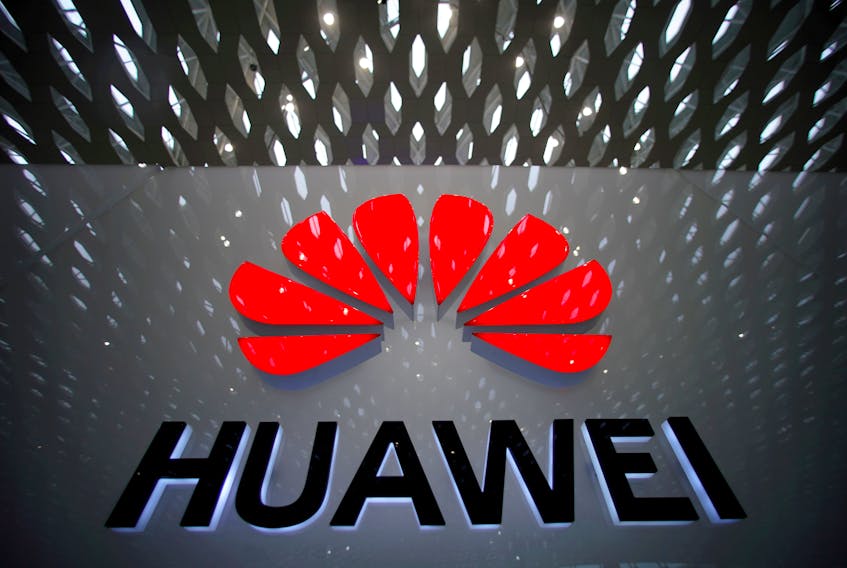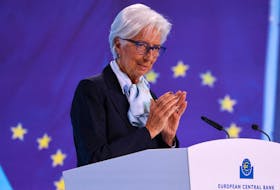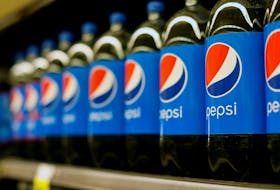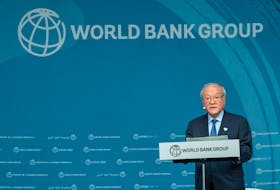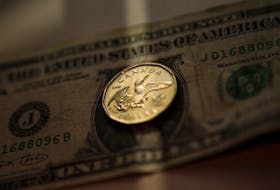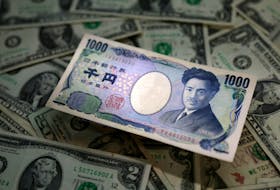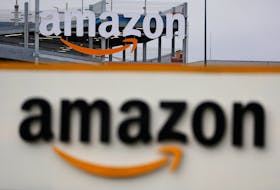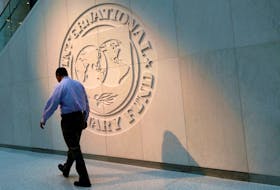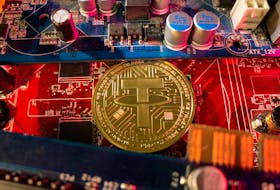By Karen Freifeld
NEW YORK (Reuters) - U.S.-based Citigroup Inc and French bank BNP Paribas are caught up in the U.S. criminal case against the chief financial officer of China's Huawei Technologies, according to newly available documents.
The banks were named in documents released on Tuesday after a hearing in British Columbia Supreme Court, where Huawei CFO Meng Wanzhou is fighting extradition to the United States on bank fraud charges.
The two are among at least four financial institutions that had banking relationships with Huawei when Meng and others allegedly misled them about its business dealings in Iran despite U.S. sanctions.
Two others, HSBC Holdings Plc and Standard Chartered, have been previously reported.
The banks are considered “victim” institutions in the 13-count indictment the United States brought against Meng and Huawei, which includes charges of bank and wire fraud, violating sanctions against Iran and obstructing justice.
Both she and Huawei have denied wrongdoing.
Spokespeople for Citigroup, BNP Paribas, Standard Chartered, and HSBC all declined to comment, as did a spokesman for U.S. prosecutors. Huawei did not immediately respond to a request for comment on the newly public information.
The British Columbia court made public hundreds of pages of documents and other materials, including video of Meng's detention, in advance of a hearing scheduled to begin Sept. 23 in Vancouver.
Meng, the daughter of Huawei's billionaire founder Ren Zhengfei, was arrested at Vancouver’s airport in December on a U.S. warrant and her lawyers argue she was unlawfully detained. They claim Canadian authorities delayed her arrest to allow the border patrol to gather evidence for the United States as part of a "covert criminal investigation."
In the video, Meng can be seen moving through the Vancouver airport customs and immigration area, escorted by border agents, and being questioned.
In a transcript, Meng repeatedly asks why she was being detained and is eventually told she can contact a lawyer, but not her family.
"My family members will be worried if they can't find me," she says.
Meng was searched and interrogated for hours in violation of her constitutional rights, her lawyers say. She spent more than a week in detention before being granted bail.
TRADE WAR
Diplomatic relations between Canada and China turned icy after Meng was detained and China subsequently arrested two Canadian citizens, charging them with espionage. It has also blocked imports of some Canadian commodities.
Meng and Huawei also have become part of the escalating U.S. and China trade war.
U.S. President Donald Trump told Reuters in December he would intervene in her case if it would help secure a deal with China, leading her lawyers to argue the extradition proceedings are being used for economic and political purposes.
In Tuesday's court documents, they describe Trump's comments about Meng as "corrosive of the rule of law."
The United States also has made a broader push against Huawei, the world's largest telecommunications maker, which it maintains is involved in activities contrary to U.S. national security or foreign policy interests.
Huawei was placed on a U.S. trade blacklist in May that bans the sale of U.S. parts and components to the company without special licenses. So far, the licenses have not been granted except to allow the repair and maintenance of existing products and networks.
Besides alleged sanctions-busting, the United States says the company's smartphones and network equipment could be used by China to spy on Americans, allegations the company also has repeatedly denied.
In one document released on Tuesday, the United States describes the evidence against Meng, including articles published by Reuters in 2012 and 2013 about a company in Iran called Skycom Tech that had tried to sell computer equipment from a U.S. firm to a customer in Iran.
The reporting detailed links between Huawei and Skycom, including that Meng had served on Skycom’s board of directors between February 2008 and April 2009.
The articles were "concerning" to at least four financial institutions that banked for Huawei, according to the document, which was drafted by a U.S. federal prosecutor in Brooklyn, New York, where the case was brought against Meng and Huawei.
U.S. laws and regulations generally prohibited the banks from providing U.S. dollar transactions tied to Iran through the United States.
Meng and others defrauded HSBC and other banks by misrepresenting Huawei's relationship with Skycom, according to U.S. prosecutors who claim Skycom’s operations in Iran were controlled by Huawei from at least 2007 until 2014.
U.S. authorities claim Huawei used Skycom to obtain embargoed U.S. goods, technology and services in Iran, and to move money via the international banking system.
According to the newly available document about the evidence, witnesses for the prosecution of the U.S. case will include executives from HSBC, Standard Chartered and Citigroup, and an FBI forensic accountant is expected to testify about documents showing BNP Paribas provided banking services for Huawei between at least 2013 and 2018.
In February, when Reuters exclusively reported that HSBC conducted a probe that helped bring the case against Meng and Huawei, a spokesman said the bank was legally obligated to provide the information it did to the U.S. Department of Justice.
All four banks have resolved their own sanctions issues with U.S. authorities in recent years. The agreements range from BNP Paribas paying $8.9 billion in 2014 and pleading guilty in U.S. court to Citigroup agreeing to pay $217,841 the same year over potential civil liability for its apparent violations of sanctions programs.
(Reporting by Karen Freifeld in New York; Editing by Amran Abocar, Muralikumar Anantharaman and Tom Brown)

